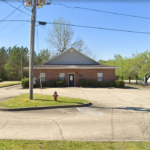People think and act
differently when they’re owners. They take more
ability to shape the outcome of the company.
Privately-owned companies
can be more
nimble in the marketplace, and this is very important today.
[Warren Buffett]
operates with
a high sense
of integrity,
and when he buys a business,
he doesn’t carve it up.
‘Insurance [is] not the sexiest industry in the world, and to be No. 1, well, that’s really something.’
Company Snapshot:
Edgewood Partners Insurance Center (EPIC)
Agency Principals:
Dan Francis, John Hahn, plus 30 employee shareholders
Founded:
July 2007
Locations:
San Mateo, San Ramon, Folsom/Sacramento, San Francisco, Los Angeles, Newport Beach and Orange County
Insurers represented:
50+
No. of Employees:
215
Annual Revenue:
$35 million-$40 million
Ask entrepreneurs why they started a particular business, and they will often tell you that it just seemed like the right time to take the leap – that enough of the right elements were in place to justify the risk.
That was the case with California’s Edgewood Partners Insurance Center, otherwise known as EPIC. Agency principal John Hahn had spent 20 years helping to build Tri-City Brokerage into a nationally ranked independent wholesaler. After Tri-City’s sale to BISYS in July 2007, Hahn found himself yearning for the entrepreneurial environment he’d experienced in the early years of founding Tri-City.
“I’ve got an entrepreneurial heart,” Hahn said. “I love startups.”
Meanwhile, Dan Francis, the CEO of ABD Insurance and Financial Services Inc., also was at a crossroads. Francis had a strong hand in ABD’s growth into the nation’s 15th largest insurance broker, with annual revenues climbing from $30 million to more than $175 million during his tenure. But after six years of being owned by the Greater Bay Bancorp, Wells Fargo announced its decision to buy Greater Bay Bank/ABD in April 2007. The deal was consummated in October.
“I left because I had spent six years being owned by a small regional bank. Now being owned by a large bank with 220,000 employees wasn’t going to work for me,” Francis said.
“Dan and I were both in parallel paths from a career perspective,” Hahn said. “Dan was my best friend, and had been a mentor for my wife at Calco [Insurance Brokers and Agents Inc.]. When we discussed the idea of starting a company together, we said, ‘no brainer, let’s go for it.'”
“The timing was good, plus my background in retail, and John’s in wholesale gave us a very strategic advantage,” Francis said. “In addition, the trust John and I had in each other afforded us the best opportunity to win.”
Another key player in the emerging firm was Jeff Cappel. “He was a key architect in the vision, building and development of EPIC,” Frances said. Cappel remains a board member and advises the firm on acquisitions.
By June 2007, Francis and Hahn had secured $100 million in financing through Trident IV L.P., a private equity fund managed by Stone Point Capital.
Empowering Employees
The two men say the new retail property/casualty and employee benefits insurance brokerage had a unique investment structure from the very beginning; key employees, producers, acquired principals and executive management can build significant equity ownership in the firm.
“I think, fundamentally, that people think and act differently when they’re owners,” Francis said. “They take more ownership in having the ability to shape the outcome of the company versus being an employee and working as a non-owner. Many companies give equity or stock, but those businesses tend to be built already without affording the individual the opportunity to make a real difference in the success proposition of that firm. Here at EPIC, our people actually have the chance to impact the destiny of the company. We’re bringing people in from environments where they were all very successful. They get to put their fingerprints on this business and influence the direction the firm is moving.”
The two men say that the result has been a company that empowers employees to harness their intelligence and experience to solve problems – without needing constant hand-holding by management.
“Dan and I are able to spend our time doing what’s necessary to build the business rather than dealing with the minutiae of corporate operational work,” Hahn said. “We can focus on making sure that we’re in the right business segment, executing the business plan and doing acquisitions. What happens in larger firms is you often take your eye off the ball in terms of what’s important. The real opportunity comes in devoting your time and attention and efforts to finding solutions for your clients.”
Returning to Their Roots
EPIC became a visible presence in California with its July 2007 purchase of Calco Insurance Brokers and Agents Inc. With revenues of $13 million and offices in three areas of the state, Calco could provide an initial operating platform for EPIC to launch its expansion. But for Francis and Hahn, there was a deeper reason to acquire that particular firm.
“Dan had worked at Calco with my wife from 1979 to 1989,” Hahn said. “The company had struggled for many years and had difficulty growing.”
Francis added, “There was a lot of serendipity in my coming back to Calco after almost 20 years of being away. It has been very rewarding for John and me to see the excitement and belief that the Calco people have in themselves. They have all become an integral part of our success.”
Hahn added that the day EPIC closed on the Calco acquisition was when the reality of the new firm hit. “We were in business and had bought a company with $12.5 million. You work real hard, and now all of a sudden you’ve acquired 63 people and their clients, and you have a chance to breathe new energy, new oxygen into the firm. Dan and I knew if we could do what we thought we could do, we had a real opportunity of taking a tiger by the tail.”
In their acquisition and subsequent rejuvenation of Calco, Francis and Hahn may have been taking inspiration from business legend Warren Buffett, for whom they both have deep respect and admiration.
“What I like about Buffett,” Francis said, “is that he surrounds himself with really smart people. He operates with a high sense of integrity, and when he buys a business, he doesn’t carve it up. He makes a go of it. He’s the No. 1 business leader in our industry and arguably the best business mind in all of America.”
Francis and Hahn described this past year of launching EPIC and the rapid growth the brokerage has experienced as the most rewarding period of their careers.
“It’s been intoxicating and invigorating – a real team game for John and me,” Francis said. “Even with the experience we have – 60 years between us in the insurance business – we’re learning something new every day. It’s been very hard work. You never stop thinking about this business when you’re building like we are.”
During this strong growth period, EPIC is striving to retain a strong entrepreneurial culture while continuing to build the right teams geographically throughout the state. The two men say it’s a big challenge during a period of rapid growth to scale the business, while gluing all the parts together as one cohesive team.
Talent Seekers
“John and I spend 75 to 85 percent of our time evaluating talent,” Francis said. “These are experienced producers with 10 to 25 years of experience. When they come here, they hit the ground running. Aside from their production capabilities, one of the key things we look for is how well they fit culturally. They must be able to work effectively in a team environment.”
How does EPIC know when a prospective hire may not be a good fit for the company? “When they use the words ‘I’ and ‘me’ a lot, versus we,'” Francis said.
“We’ve gotten to know many of the players, and we pretty much know the talent here,” Hahn added. “We’re building a team and we’re looking for people who specialize in the areas we want to be great at.”
EPIC has an ambitious growth plan, particularly considering the economic downturn affecting the country as a whole and the current soft market. The firm opened offices in San Francisco and Los Angeles in June 2008, and by year-end plans to have eight offices evenly distributed between California’s northern and southern regions.
Two-thirds of the brokerage’s writings are in property/casualty, predominantly construction and technology industries including biotech, renewable energy and health care. The other third of the business is in employee benefits.
EPIC is looking to maintain that balance as its revenues grow, with strong cross-selling. Some of the growth niches targeted include the renewable energy industry. “We’re in wind and plan to go horizontally through that field,” Hahn said, adding that EPIC also plans to expand its health insurance writings by year-end.
EPIC’s principals credit their partner, Stone Point, with providing a strong foundation for growth. “This is all they do,” Francis said. “Obtaining financing was not the hard part. The most important aspect of our relationship with Stone Point was its fundamental belief in this space as well as its reputation and character in the industry.”
“It’s up to us to drive and build the vision and bring in right people who can execute the plan,” Hahn added. “At the same time, we’re putting in place the protocols and disciplines to ensure we can get the proper return as a company.”
Growth in a Soft Market
“One of our major differentiators,” Francis said, “is that our firm is in a growth mode, while other companies are in a cutting mode. Many of our competitors are trying to constrain compensation and other costs associated with obtaining a reasonable profit margin. The current market conditions are certainly exacerbating this for a number of reasons.”
A veteran of many tough market cycles, Francis believes that brokers have to find ways to mitigate costs for the client while enhancing benefits.
Both Francis and Hahn have worked in publicly traded environments and say privately-owned firms have a number of significant advantages when it comes to competing in a soft market. Brokerages owned by entities such as banks, Francis noted, are highly regulated with different governance structures and are strongly influenced by shareholder expectations. That oversight can be a good thing, he said, but privately-owned companies are able to operate more independently.
“They can be more nimble in the marketplace,” Francis said, “and this is very important today. Technology has changed the world, and clients expect faster, more complete answers.”
In challenging times when the economy is tight and businesses are feeling pressure to rein in expenses, Francis said it’s even more important for clients to be sure they have an insurance broker where they’re getting the “A” team.
Of course, some of EPIC’s business rivals have not been happy to see producers and key executives defect to the new firm. The company faced a lawsuit in late 2007, when another broker and its California subsidiary took legal action last winter after a large number of its staff went to work for the upstart. The lawsuit, filed Dec. 20, 2007, in U.S. District Court in San Francisco, alleged that EPIC conducted a “sneak attack” on the other company’s personnel and proprietary information leading up to December, when more than half the employees in one of its offices moved to EPIC.
On Jan. 23, 2008, however, a U.S. District judge denied the other company’s request for a temporary restraining order, stating that it had not “demonstrated a likelihood of success on the merits,” and that the defendants had submitted “substantial, credible evidence” that they did not conspire to leave the company, use insider information or engage in other activities alleged in the lawsuit.
The case is ongoing, but Francis said, “We are confident the judicial process will demonstrate that EPIC and its new employees have acted fairly and properly.
Of course, a little rough and tumble comes with the territory when becoming an aggressive player in the marketplace. For its part, EPIC is focusing on further expansion while simultaneously creating an environment that motivates people and encourages them to stay and reach their full potential. With that goal in mind, Francis and Hahn say they are being careful to nurture a positive work climate.
“It’s OK have fun,” Francis said. “I believe executives have to have more than an ‘open door policy.’ You must be approachable where people truly believe they can have a voice and be heard. I think that people complicate things in life. Succeeding in business is about trust. Trust between clients, employees and the carriers we entrust the business to, is everything. And then there’s respect. And, lastly, you bundle it all up and it becomes a team game.
“At our company, we like to say that ‘egos are checked in at the front door,'” Francis continued. “Trust, respect, team. If you can do those things, you’re going to have a winning proposition.”
In May, EPIC got some feedback that they are heading in the right direction. The firm was voted the No. 1 Best Place to Work in the Bay Area, among firms with fewer than 500 employees. More than 500 companies were nominated in four categories in the survey, which was conducted by Quantum Market Research and sponsored by the San Francisco Business Times and Grant Thorton.
“We were flattered just to be nominated,” Hahn said. “To be ranked No. 1 was overwhelming. To give birth nine months ago to a company and to have that award bestowed upon us is a huge affirmation.”
“We could not be more proud of what our employees have done,” Hahn added. “A lot of the companies on the list with us are in young and high-energy areas, like technology. Insurance [is] not the sexiest industry in the world, and to be No. 1, well, that’s really something.”
Was this article valuable?
Here are more articles you may enjoy.


 India’s GIFT City Attracts Lloyd’s and Other Global Reinsurers, Sources Say
India’s GIFT City Attracts Lloyd’s and Other Global Reinsurers, Sources Say  Zurich Reveals Beazley Stake After UK Insurer Spurns Bid
Zurich Reveals Beazley Stake After UK Insurer Spurns Bid  Longtime Alabama Dentist Charged With Insurance Fraud in 2025 Office Explosion
Longtime Alabama Dentist Charged With Insurance Fraud in 2025 Office Explosion  Winter Storm Fern to Cause Up to $6.7B in Insured Losses
Winter Storm Fern to Cause Up to $6.7B in Insured Losses 


